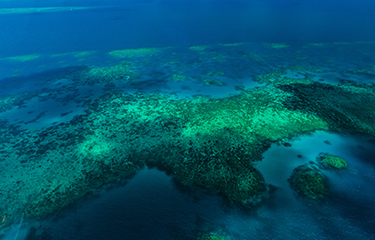Australia plans to phase out gill-nets in Great Barrier Reef

The Australia Department of Climate Change, Energy, the Environment, and Water announced it is allocating AUD 160 million (USD 105 million, EUR 98 million) to reduce fishing in the Great Barrier Reef, and requiring the mandatory phase-out of gillnets in the reef by 2027.
The reforms, announced by Australia Minister for the Environment and Water Tanya Plibersek, will create net-free zones in the northern third of the Great Barrier Reef. The funding will also be used for implementing the country’s sustainable fisheries strategy. Legislation will also be introduced to mandate independent validation of data provided by commercial fishing vessels operating in the area.
“The Great Barrier Reef is one the most beautiful places on Earth. We want to better protect it for our kids and grandkids,” Plibersek said in a release.
According to the department, all N2 and N4 net fishing licenses will be bought out and eliminated by 31 December, 2023. The government will also buy out, remove, and condition a limited number of N1 licenses in the same time period. The remaining limited N1 licenses will then be phased out to make the reef gill-net free by 30 June, 2027.
The government will also engage in a voluntary fishing license buyout, the department said in a release.
Plibersek said the legislation will reduce impacts on threatened marine species such as dugongs, turtles, and dolphins along with reducing potential damage to the reef.
“The removal of gillnets in net-free zones on the reef has already helped boost local fish populations,” Plibersek said. “We want to see this happen right across the reef.”
The reforms also include a request to declare threatened hammerhead sharks a “no-take species” for commercial fishers fishing in Queensland, Australia. Queensland Minister for Agricultural Industry Development and Fisheries Mark Furner called the move an “investment in the future of the reef" and a way to help the commercial fishing industry.
“Protecting good jobs in the fishing industry is crucial for the livelihoods of thousands of Queenslanders who depend on the state’s seafood supply chain,” Furner said. “By transitioning to more sustainable fishing practices and taking measures to maintain fish stocks, we can ensure the long-term viability of good jobs in the fishing industry for our children and our grandchildren.”
WWF, which pushed for a net-free area in the reef through a seven-year-long advocacy campaign, applauded the decision, calling it a “globally significant moment for ocean conservation.”
“This announcement is shaping up as a globally significant moment for ocean conservation, fisheries management and the Great Barrier Reef – one of the natural wonders of the world,” WWF Australia CEO Dermot O’Gorman said in a release. “If all goes to plan, by June 2027 we’ll have a net-free reef where dugongs, turtles, dolphins, and other threatened species can swim without the threat of becoming entangled and drowning in a gill-net, and that’s a cause for global celebration.”
Photo courtesy of Angelina Pilarinos/Shutterstock






Share